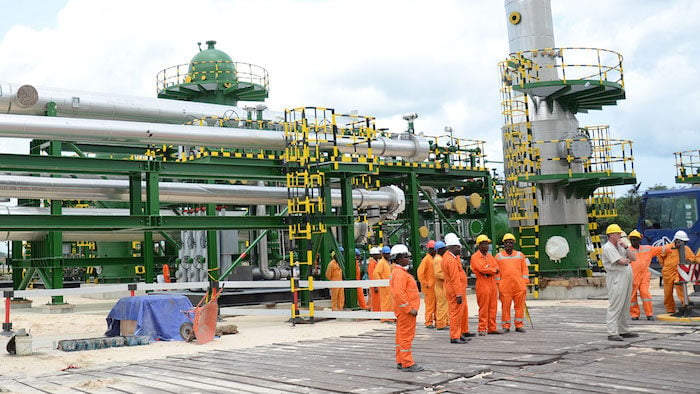Industry analysts and operators in Nigeria’s oil and gas sector have presented a blueprint detailing how the industry can be transformed into a world-class energy industry.
Most of the commentators who spoke at the 2025 Association of Energy Correspondents of Nigeria (NAEC) conference in Lagos, identified persistent underinvestment, aging oil fields, oil theft, industrial unrest and security threats, particularly in the Niger Delta, as a great limiting risk which have continued to erode production volumes.
They noted though that the Petroleum Industry Act (PIA), signed into law in 2021 by former President Muhammadu Buhari, had been reshaping the oil and gas governance system, adding that the pivotal fuel subsidy removal in 2023 by the incumbent President Bola Tinubu had revamped the oil sector towards curtailing corruption and saving more revenue for the government.
They also noted that the Electricity Act, signed into law in 2023 that is redefining how power is generated, transmitted, and consumed is a right piece of legislation as this landmark legislation repealed the Electric Power Sector Reform Act of 2005 and shifted the electricity landscape from a centralised, federal-dominated system to a more decentralised, private-sector-led, and multi-tiered market, while also empowering states to regulate their own electricity sectors.”
In the view of Dr. Uche Ogah, the president of Masters Energy Group, without coordinated policy enforcement and robust financing, the PIA’s promises risked remaining on paper.
Ogah, a former minister of state for Mines and Steel Development of Nigeria, said the global shift toward decarbonisation was not a distant possibility, saying it was already reshaping markets.
In the power industry, he said the federal Energy Transition Plan, which envisions 30 per cent renewable capacity by 2030, could be exceeded with decisive action.
He warned, “If we relax and don’t take timely action, we become a market for imported technologies and miss out on the jobs, investment, and industrial diversification that a homegrown green economy can deliver.”
Ogah further advised that the government should consider gas as a strategic bridge fuel that would unlock both the immediate and future potential.
He said that Gas-fired combined-cycle plants could supply reliable baseload electricity for steel, cement, and fertiliser factories, reducing reliance on diesel generators.
According to him, scaling up CNG distribution hubs in Lagos, Kano, and Port Harcourt can replace charcoal, cutting indoor air pollution and deforestation.
He added that by expanding LNG capacity at Bonny Island and developing new offshore projects, Nigeria could capture a larger share of the growing Asian LNG market.
In addition, he argued that Minigrids powered by solar PV and battery storage can electrify remote villages, as demonstrated by the Solar Home System rollout in Kebbi State, which now powers over 200,000 homes.
He urged the government to provide incentives for domestic manufacturing of solar panels, inverters, and battery packs, thus creating jobs and reducing import dependence.
The Nigerian Solar Manufacturing Initiative aims to produce 1 GW of locally-made modules by 2027, he said.
Ogah states that gas commercialisation, turning abundant associated gas into LNG for export, CNG/LPG for clean cooking, and feedstock for petrochemicals and power, will help to turn around the sector.
Projects such as the Utorogu Gas Processing Facility illustrate how a single plant can convert flare gas into marketable products, reducing emissions while adding billions to GDP.
Also, speaking, the executive secretary of the Nigeria Extractive Industries Transparency Initiative (NEITI), Dr Ogbonnaya Orji, said the Federal Government lost about 13.5 million barrels of crude oil, worth $3.3 billion, to theft and pipeline vandalism between 2023 and 2024.
Orji criticised the lack of transparency and accountability in Nigeria’s oil and gas sector, saying openness and innovation are key to improving the industry, adding that the lost revenue could have funded the country’s entire health budget for a year or provided electricity to millions of homes.
He added that NEITI’s 2021–2022 Oil and Gas Industry Reports showed Nigeria earned $23.04 billion in 2021 and $23.05 billion in 2022 from the sector.
However, some companies and government Agencies still owe the Federation about N1.5 trillion, which could have been used to improve energy and healthcare services.
Orji stressed that transparency is not optional but necessary for a sustainable energy future.





